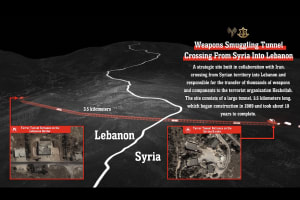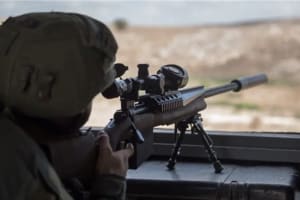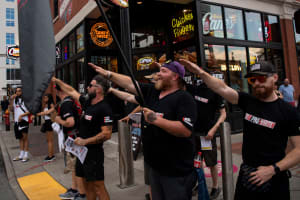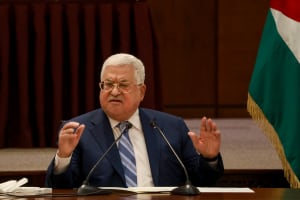Hezbollah leader admits group ‘lost military supply route through Syria,’ pledges continued resistance against Israel
In first speech since Lebanon ceasefire, Naim Qassem attempts to portray agreement as loss for Israel
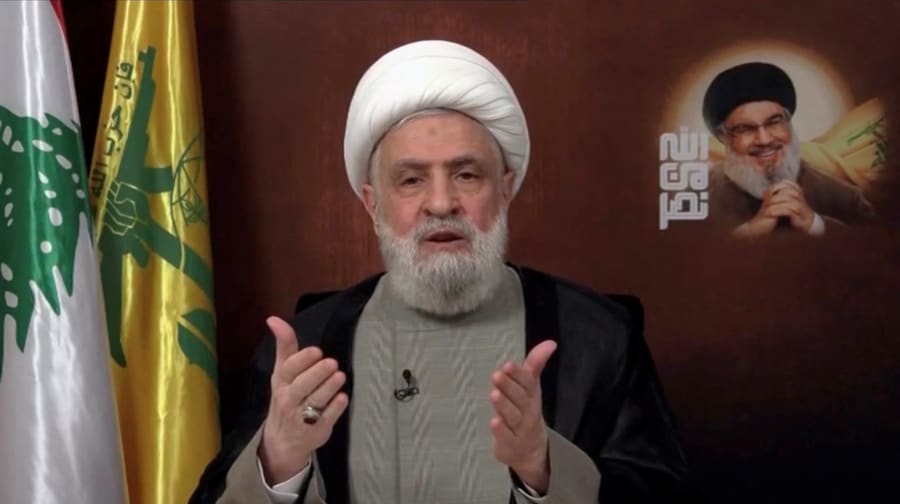
Hezbollah Sec.-Gen. Sheikh Naim Qassem gave a televised speech on Saturday evening, addressing the group’s losses in its conflict with Israel and outlining its future goals in the context of the current situation in Lebanon, Syria, and the broader Middle East.
During the speech, Qassem acknowledged the significant losses sustained by the Iran-backed Shia terror group, admitting that Israel’s strikes in Syria and the fall of the Assad regime have resulted in the loss of its primary military supply route.
“Yes, Hezbollah has lost the military supply route through Syria at this stage, but this loss is a detail in the resistance's work," Qassem said during the speech, repeatedly attempting to portray the ceasefire in Lebanon as a defeat for Israel.
“These are just details within the resistance's activity,” Qassem continued. “The new [Syrian] regime may allow this, and the route will return naturally, or we may find another way. Resistance is a flexible thing which does not stop at one border.”
Hezbollah had a close relationship with Syrian dictator Bashar al-Assad and even sent fighters to support him in the early years of the Syrian Civil War.
In return, Assad allowed Iran to bring weapons and supplies to Hezbollah through several transit points in Syria. With the fall of the Assad regime, that supply route has been cut off.
However, Qassem voiced hope that the new Syrian government would remain unfriendly toward Israel.
“We hope that this new ruling party will consider Israel an enemy and not normalize with it,” he said.
While Hezbollah has previously resisted any attempt to implement UN Resolution 1701, which barred any armed groups south of the Litani River except for the Lebanese army, in his speech on Saturday, Qassem attempted to present this part of the ceasefire agreement as a loss for Israel.
“Israel is to withdraw to the Lebanese border, and the Lebanese army is to deploy as the sole authority carrying arms. No armed groups or weapons are allowed in this area,” Qassem stated.
"The agreement has nothing to do with internal Lebanese matters, the relationship between the resistance [Hezbollah] and the state, the army, the presence of weapons, or any other issues that require dialogue and discussion,” he continued, implying that Hezbollah intends to negotiate a return to southern Lebanon after Israeli forces leave.
In fact, Qassem explicitly stated that only Hezbollah could defend against Israeli “expansionist intentions.”
"We foiled the enemy's goal of eliminating and crushing the resistance and [displacing] the settlers," he continued. He accused Israel of wanting to occupy Lebanon.
“Had it not been for this steadfastness from the resistance fighters on the frontlines, Israel would have reached Beirut and begun the next steps, including naturalization and settlement in southern Lebanon,” the Hezbollah leader claimed.
“The resistance, with its people and army, stopped Israel from achieving its expansionist goals in Lebanon,” Qassem added. “Our army paid the price of dozens of martyrs because it stood in the field. Our army is the one that needs to deploy in the south to expel the Israelis.”
In his speech, Qassem repeatedly praised the resistance while acknowledging that the fight against Israel could take a long time.
“Resistance does not win with a single blow to its enemy; it does not win by points. Resistance can last ten years or fifty years. We do not know how long the period of resistance will last,” he said.
Qassem pledged continued support for the Palestinian cause, as well as continued resistance against Israel.

The All Israel News Staff is a team of journalists in Israel.
You might also like to read this:


